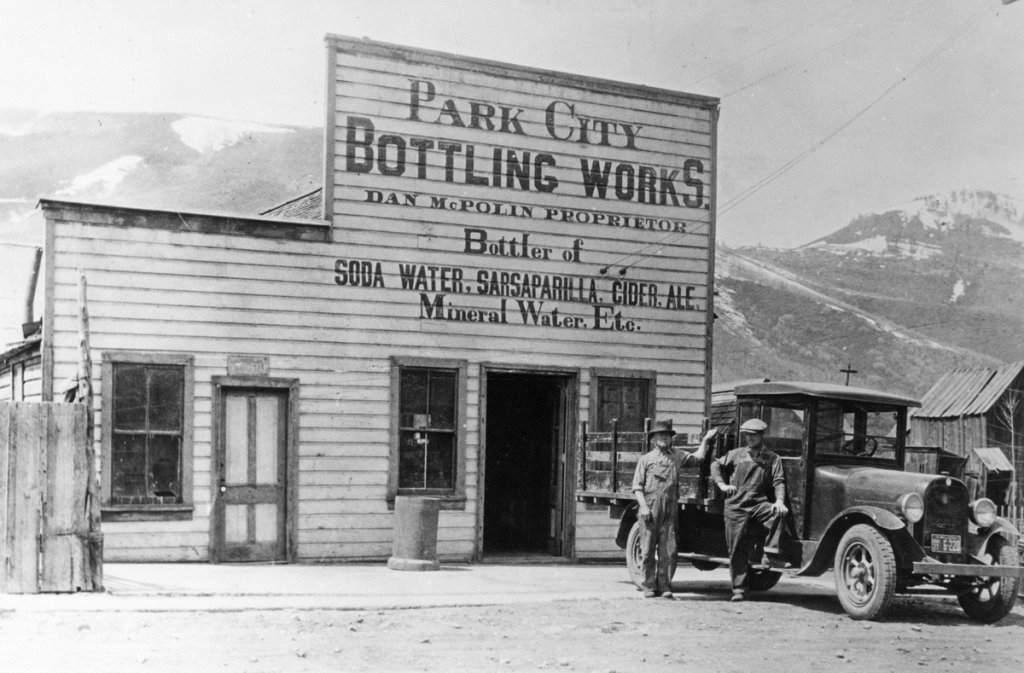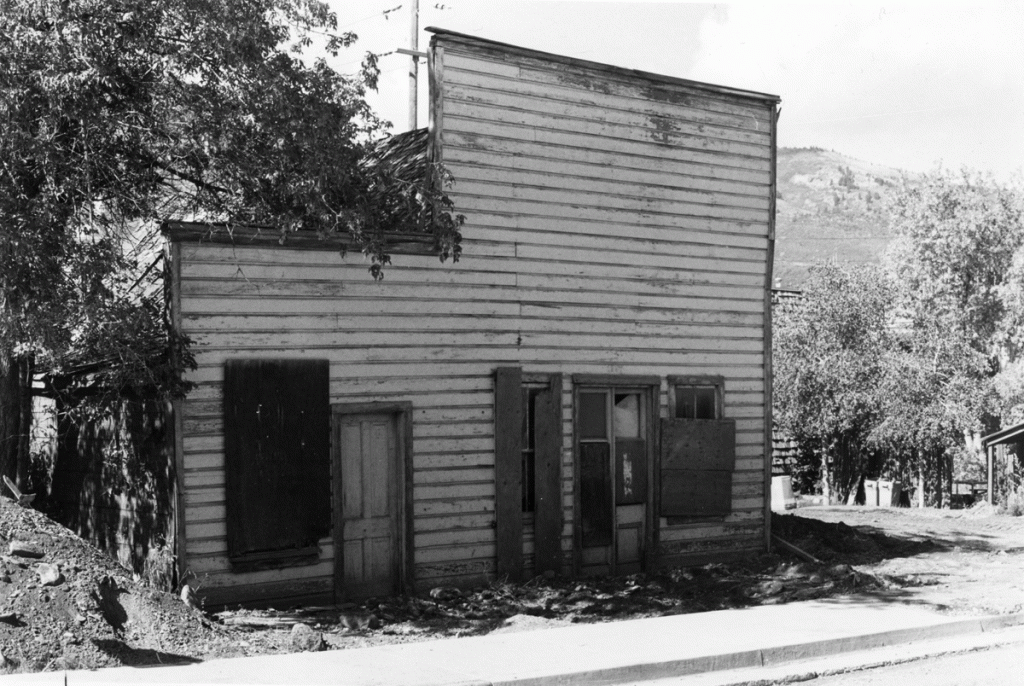Dig deep enough into the hillside below the Fireside Condominiums parking lot – site of the old town dump – and you’re likely to find old bottles going back to Park City’s early days. If you’re really lucky, you might even find one for Mc’s Drinks that had escaped the keen eyes of local kids looking to earn a few pennies on return recyclables.
For much of the 20th century, Mc’s Drinks were a Park City staple. “It was … the best-flavored soft drink I’ve ever tasted,” Eunice Pace wrote in The Park Record in 1988. “He made all flavors: root beer, orange, strawberry, grape, lemon-lime, cherry and crème. … No nickel ever seemed to buy so much as a bottle of Mc’s Drinks.”
“Mc’s” was short for McPolin’s, and “he” was Ed McPolin, who ran the family business with his wife, Nan, from 1922 to 1957. The drinks were produced at the Park City Bottling Works, a modest wooden structure at 1263 Park Avenue, next to the ball field north of what is now the Park City Library field.
In the Park Record archives you can find ads for the Bottling Works going back to 1892. When I interviewed Nan McPolin in 1981, she said her father-in-law, Irish immigrant Dan McPolin, had bought the business in 1899.
In the years before Prohibition, Dan covered his bases by calling his place “Dan McPolin’s Saloon,” selling beer made by third parties such as Becker and Anheuser-Busch as well as “all kinds of soft drinks.” Among his other enterprises was a dairy farm – where he built the iconic white barn – north of town. When Dan died in September 1922, his son, Ed, took over the Bottling Works.
At first Ed delivered his drinks by horse and wagon, or sleigh in winter, which limited his distribution to the Park City area. However, by 1926 he had splurged on a new truck, allowing him to introduce the delights of Mc’s Drinks to the residents of surrounding towns such as Coalville, Kamas and Heber City.

Credit: Park City Historical Society & Museum, Thomas F. Hansen Collection
The McPolins were pillars of Park City. Ed served four years on the Park City Council, 12 years on the Summit County Commission, and several terms in the Utah House of Representatives. Nan devoted her life to community service, volunteering for numerous local organizations. In 1987 she was chosen Rotary Citizen of the Year. In 1990 a new elementary school was named in her honor.
After Ed’s death on September 10, 1957 – 35 years to the day after the death of his father – Nan and her brother, Robert Reese, kept the business alive for another eight years. However, new technology was leaving them behind.
“We needed a new carbonator, a new (bottle) washer and a new bottling machine,” Nan said. “And we needed to fix up the whole building.”
In 1965 Reese closed the Bottling Works and took a job with the Utah Department of Transportation. For another 16 years the building defied the elements, its windows boarded up, doors nailed shut, the old machines gathering dust, bottle caps and labels lying in piles.

Credit: Park City Historical Society & Museum, David Hampshire Collection
Then, in the spring of 1981, the city approved a demolition permit for the old building. Planning Director Bill Ligety said it had historic value but was beyond repair. And one day that September another gap appeared among the vintage structures on the west side of Park Avenue.
The Park City Museum will host a Zoom lecture by author and historian Garrett Peck titled “Prohibition: Thirteen Awful Years of the Noble Experiment” on Wednesday, May 4 from 5-6 p.m. Register here. The Museum is also having a Free Admission Day on Saturday, April 16.